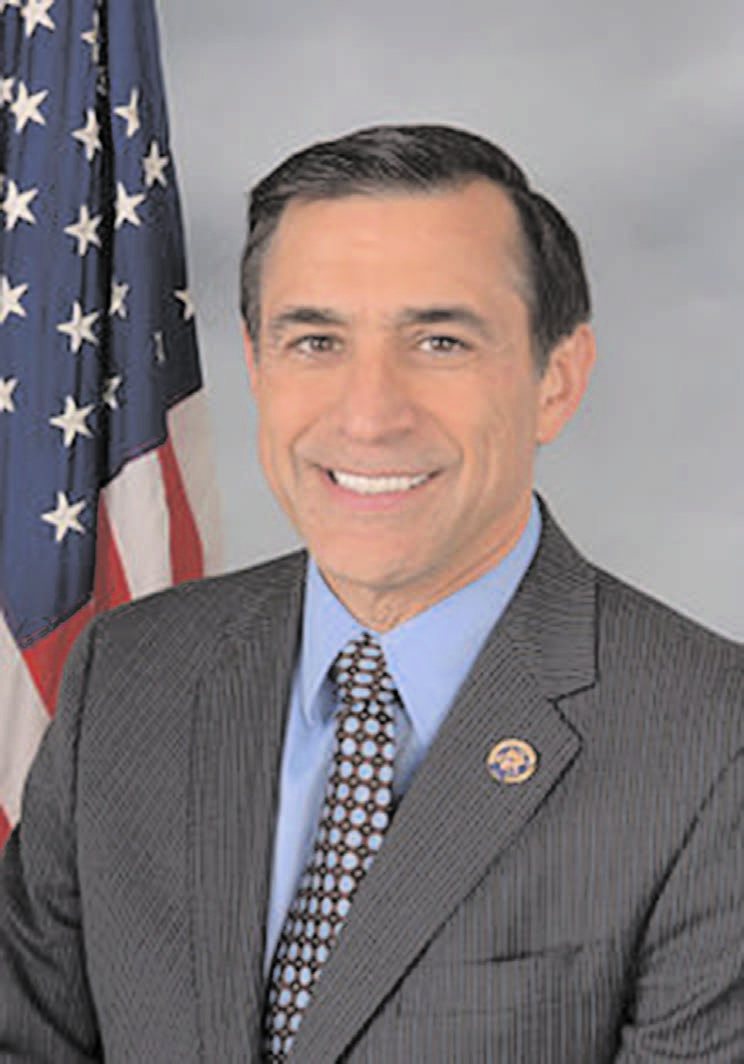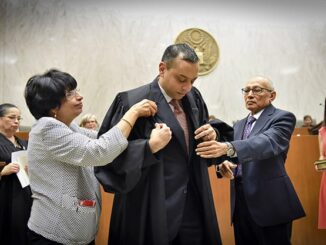
WASHINGTON (TIP): With the topic of U.S. jobs filled by foreign workers fanning the heat of the presidential campaign, Rep. Darrell Issa introduced, August 31, a bipartisan legislation designed to close loopholes in the H1-B temporary visa program to ensure that only the most highly skilled foreign applicants can work in the United States.
The “Protect and Grow American Jobs Act” bill, H.R. 5801, led by Issa, was introduced with support from the entire San Diego congressional delegation, industry stakeholders and immigration policy leaders, including Congressman Lamar Smith, R-Texas, according to a statement released by Issa’s office.
U.S. Rep. Darrell Issa is proposing to change certain exemptions that allow companies to hire more foreign workers when qualified U.S. candidates are not available.
“First and foremost, this bill is about protecting American jobs,” Issa said in a statement.
The program ensures American companies can attract the best talent worldwide, he said. “Unfortunately, in recent years, this important program has become abused and exploited as a loophole for companies to replace American workers with cheaper labor from overseas,” he said.
“The bill we’ve put forward is simple, bipartisan and will go a long way to fixing one of the many problems with our broken immigration system,” he added.
Issa pointed to what he called abuses by Southern California Edison, the Rosemead-based utility, one of many U.S. companies hiring foreign workers under the H-1B program.
Last year, federal officials investigated two outsourcing firms used by the company to hire foreign workers and found no wrongdoing. The company’s hiring practices came under scrutiny in 2014, after Edison announced it would lay off hundreds of workers, including information technology employees. Critics charged some of those workers were replaced by foreign hires.
Issa’s bill seeks to change certain exemptions to a cap on the visas as they apply to employers with more than 15 percent of their employees on H-1B visas.
The employers are required to attest they are unable to fill their positions with qualified U.S. workers when they seek more of the H-1B visas.
But companies can bypass the “attestation” requirement if the foreign workers have a master’s degree or higher, or is paid more than$60,000 per year.
Issa proposes doing away with the master’s degree exemption, and raising the salary cap from $60,000 to $100,000, thus making it harder for companies to add to their H-1B employees.
A large share of H1-B visas goes to workers from India. Shikha Bhatnagar, director of the South Asian Network in Artesia, opposes the bill and argues there’s a demand for foreign workers.
“It is my impression that there is a need for bringing in qualified tech professionals from overseas,” she said.
Some H-1B visa critics don’t think the bill goes far enough. John Miano, co-author of a book that takes aim at the program, said lawmakers don’t want to impose too many restrictions on the visas.
“There is too much money being made here,” said Miano. “There is a chain of people making money off replacing Americans with foreign workers.”
Miano said since the exemptions in question apply only to companies with a share of H-1B workers above 15 percent, the impact of the bill if it passes would be limited.
The federal government limits the number of H-1B visas to 65,000 each fiscal year. But another 20,000 can be exempted from the cap if the foreigners hold a U.S. master’s degree or higher.
Colleges and universities, related nonprofits and government research organizations can also petition for exemptions from the 65,000 limit when hiring H-1B employees.
Attempts to reform the H-1B program have been pushed by both Republicans and Democrats who argue that the visas allow companies to pay lower wages to foreign workers while displacing U.S. workers.
Issa’s bill, which would be taken up by the GOP-controlled House, has seven co-sponsors, including four Democrats.





Be the first to comment